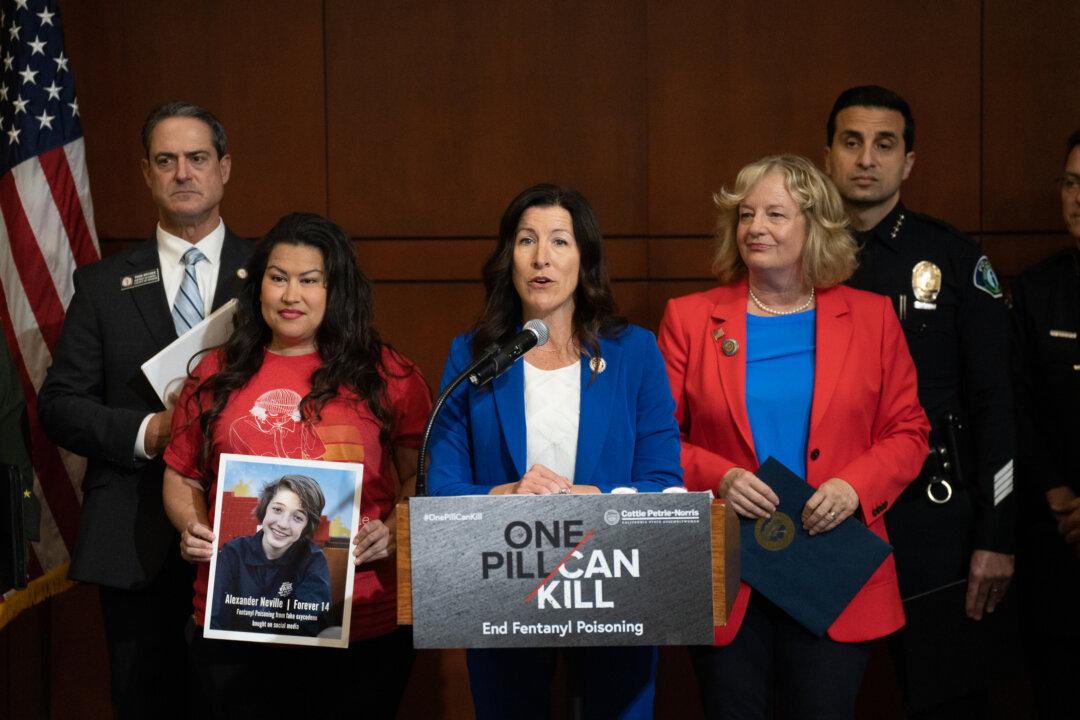In an effort to protect California residents—especially youth—against the rapidly growing fentanyl crisis, Gov. Gavin Newsom signed a bill into law Oct. 13 aimed at requiring greater transparency and accountability from social media platforms operating in the state.
Assembly Bill 1027—introduced by Assemblywoman Cottie Petrie-Norris (D-Irvine)—requires such platforms to disclose policies for keeping records of users’ online communication, specifically those flagged for drugs, and the sharing of such information related to drug distribution. The bill aims to help law enforcement agencies better combat the sale of illegal drugs online and “address [the] fentanyl crisis,” according to a statement in July by Ms. Petrie-Norris announcing the bill.





